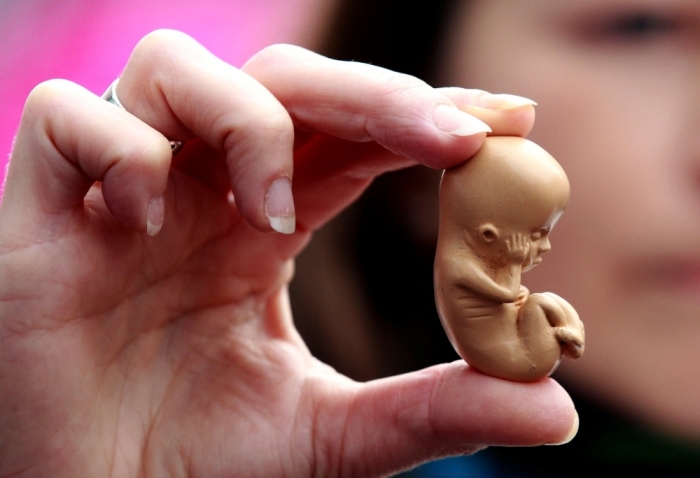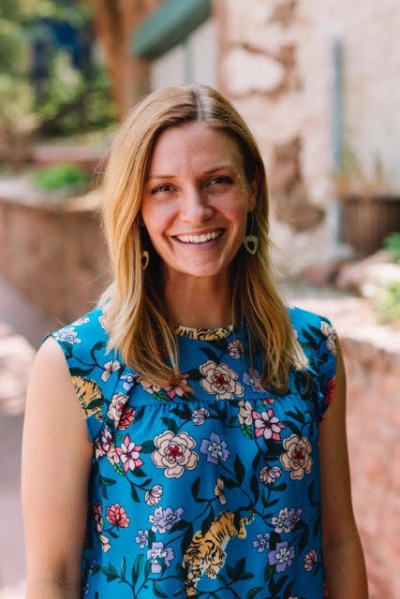How does science support the pro-life cause? An apologist answers

A pro-life Christian apologist has shot down the argument that unborn babies are nothing more than “a clump of cells” that are part of the mother’s body and argues that embryos essentially drive their own development from the earliest stages of pregnancy.
Megan Almon, who has trained hundreds of individuals to defend the pro-life viewpoint through Life Training Institute, spoke to teens and young adults gathered for Summit Ministries’ five-day online student conference on Monday. The conference challenges people ages 16 to 25 to “think deeper about their personal faith and convictions.”

“Abortion is a travesty. … The unborn is not part of the mother’s body ... not in the same way that my arm is part of my body,” Almon explained to the virtual audience of over 100 teens and young adults. “The unborn is attached to its mother, but not part of her body. … We are distinct organisms. ... [The unborn] has its own unique genetic code that differs from its mothers and its fathers.”
To explain her stance, Almon addressed a few questions: “What is the unborn?” and “How can someone know exactly when one type of egg cell becomes another type of cell — a zygote?”
She said two scientific things must occur to create an unborn zygote. The first, she said, is that one cell becomes another type of cell if it changes in its material composition, which would create a new cell. The other way to know if a new cell has been created, she added, is if one cell changes how it behaves.
If the cell changes its makeup or if it changes behavior, something brand new is created — a human being, she added.
Almon said that it only takes about 250 milliseconds after sperm and egg meet for the plasma membranes of both cells to begin to merge to form a hybrid cell surface, and the material composition and behavior changes are also very abrupt.
“That egg cell, faster than I can snap my fingers, changes in its material composition and goes from being an egg cell that could survive about 24 hours in its environment, to being a brand new kind of cell that can now survive 100 years given medical technology because it is a human being,” Almon said.
“Within about three to five minutes, that cell changes behavior entirely and goes from being the egg cell whose sole job was to attract sperm, to being something like the death star that now repels [sperm] because of the formation of the zona pellucida, which causes that to happen. That new human being, who is protected, begins its earliest development along the way.”
According to Almon, who received a degree in Christian apologetics from Biola University and whose husband serves as director of programs and semester with Summit Ministries, humans are constantly developing.
Not only are humans distinct, but she said they are whole human beings at the zygote stage.
The speaker contends that both alive and dead cells come off the epidermis when humans scratch their skin cells.
However, after someone scratches off those cells, the ones that fall off, that are alive, will not live for much longer than a few minutes on whatever surface they land. She said that when humans scratch their skin, they are not mass murderers because the bodily cells that fall off the skin are part of them and contribute to their overall function.
However, she said an embryo — a zygote at the single-cell stage — is different from any other type of cell in the body. Sperm cells and egg cells are indeed alive, but those are also part of a larger organism and carry specific roles for that organism, she added.
“The embryo, even at the single-celled stage, its parts contribute to its overall function, and it goes on to do something that is absolutely remarkable,” she told attendees. “We hear language oftentimes in these conversations that debate the science saying, ‘Oh, it’s just a clump of cells, it’s just a mass of tissue,’ as if the unborn is some kind of constructive thing.”
“From the time you were an embryo, you were not constructed at all. You drove your own development from within, and you're still doing that,” she continued. “Science tells us we are living distinct and whole human beings from the moment that we came into existence. That's remarkable.”
One of the biggest hurdles humans have to overcome when talking about the pro-life view, Almon said, is the nature of moral truth and the idea of moral relativism. Moral relativism is a term used to describe philosophical positions concerned with the differences in moral judgments across different individuals and cultures.
“... Abortion most often is framed as something that is a matter of personal preference. … In other words, we hear things like, ‘I would never have an abortion, but I can’t tell people what’s right and wrong for them.’ That is moral relativism,” she explained.
“Men and women … we need your help when it comes to issues like this one. ... If I’m right about the issue of abortion, this idea that some human beings don’t matter as much as others is playing itself out to the tune of around 2,000 to 2,500 human lives every single business day [in our nation alone],” she added. “It’s overwhelming to even think about. We have to talk about this because there is too much at stake not to talk about it. … Remember that ideas have consequences. … Dangerous ideas have victims.”
As Almon concluded her lecture, some of the young adults and teens watching asked questions in the chatbox on the virtual platform. Some wondered about different opposing views used to rationalize the pro-life stance.
“What is your opinion on the argument regarding topics such as incest, rape ending in pregnancy?” asked one viewer named Kathleen Rutler.
Almon responded that humans should start by emotionally acknowledging there is nothing easy about the topic of rape. She said humans should not simply dismiss the question with an intellectual answer but should “meet hurting people where they are and carry their burdens with them.”
Almon said the answer to the question points to another question: “If a baby is a product of rape, and the baby reminds the mother of how horrible that was, can she kill the baby?”
“I think the answer is no because even though rape is psychologically different, it still begs that question, ‘What is the unborn?’ If the unborn is human, which the science and philosophy clearly demonstrate, then we cannot kill the unborn for that reason,” Almon said.
Another viewer named Tessa Doerr said she is pro-life. However, she said a question she often ponders about is: “If the baby seriously endangers the mother’s life and there is no other help for the mother,” can abortion be deemed appropriate?
“We live in a broken world, where this sometimes happens, and this is rare when this is the case,” Almon replied, not giving a clear answer about if the mother or the baby should live in those cases. “... Abortion is the intentional killing of the human embryo or fetus. … The pro-life stance still stands [in occasions when doctors typically choose mother over baby in those cases]. …”




























